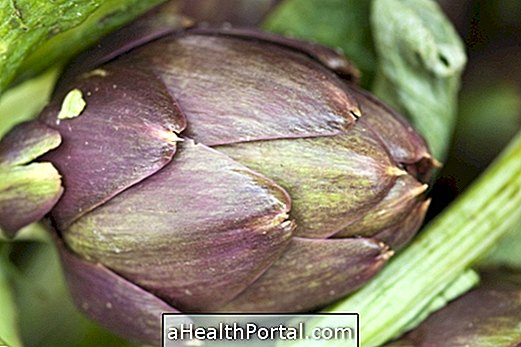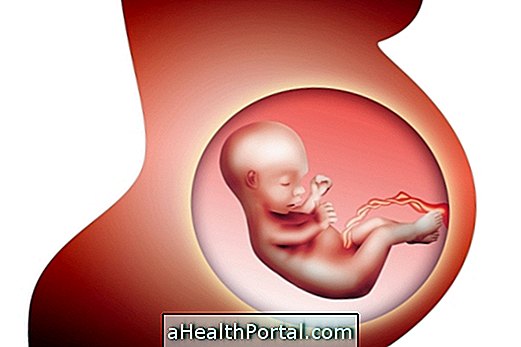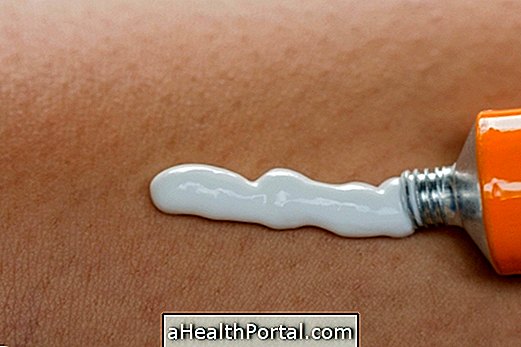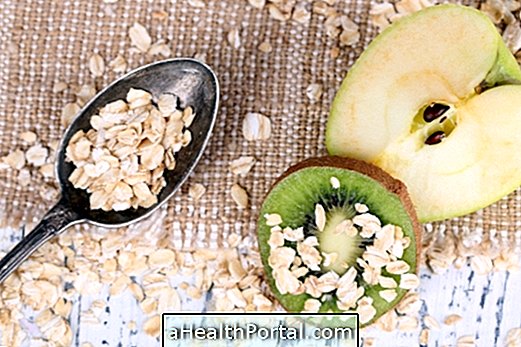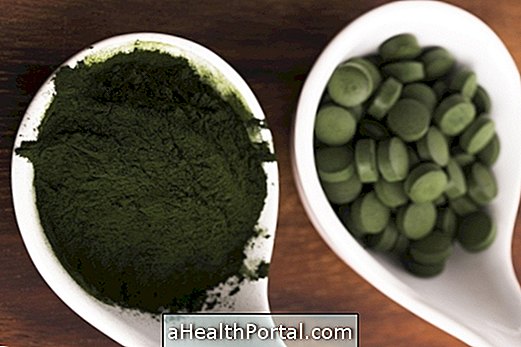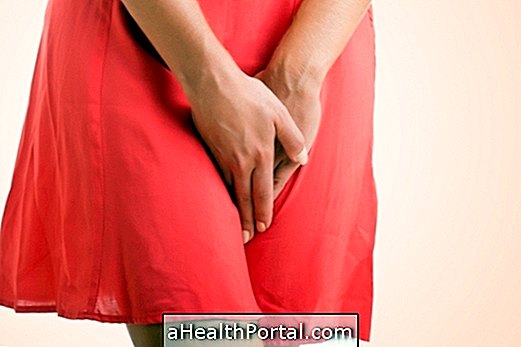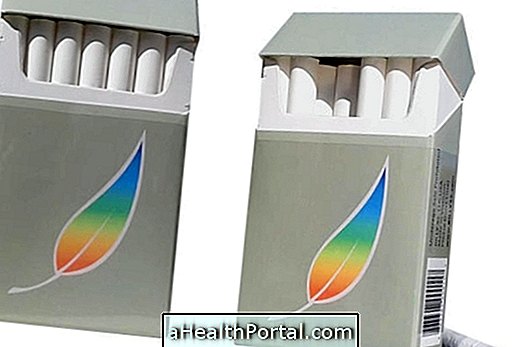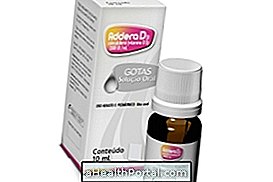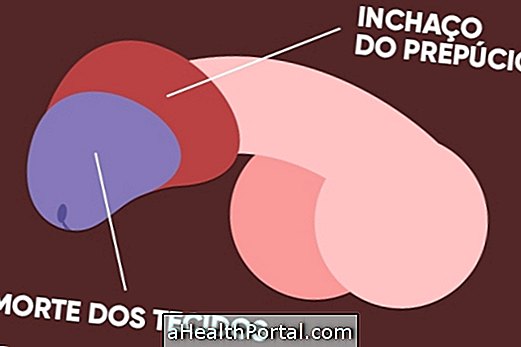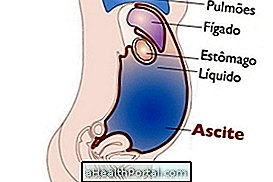Fluid retention, or edema, is when the body becomes swollen due to the presence of more water between the cells of the body. This can happen due to feeding, standing in the same position for too long, abusing foods rich in salt and sodium, or due to certain diseases.
Water retention is usually not serious, but it may be necessary to take medicine when it is caused by kidney or heart disease, for example. In the simplest situations, ingesting more water, diuretic teas and practicing exercise may suffice. Taking diuretic medicines and resorting to lymphatic drainage are also good strategies to complement the treatment.


How to Eliminate Fluid Retention
To combat water retention it is recommended to take teas, exercise, take care of food, take some care, and in the latter case the doctor may indicate the use of diuretic medicines. Learn more about each option.
1. Take teas to fight against fluid retention
To combat fluid accumulation in the body it is recommended to take teas with a diuretic effect such as:
- Horsetail,
- Hibiscus;
- Cinnamon with ginger;
- Green;
- Ginkgo biloba;
- Salsinha;
- Asian spark;
- Indian chestnut.
Any tea already has diuretic effect, because basically the more water the person ingests, the more urine it will produce. This urine will be full of toxins and will also carry excess body fluids. However, certain plants increase this diuretic effect of teas, as with green tea, horse mackerel, hibiscus, ginger and parsley. See other examples and how to prepare the best recipes for diuretic teas.
2. Do exercises to combat swelling
Practicing exercises is also a great natural way to swell the body with quick effect. The contraction of large muscle groups like arms, legs and buttocks forces the excess fluid to be eliminated through the urine. Therefore, it is common to feel like urinating after 1 hour of exercise in the gym, for example.
Some exercises that may be indicated are fast walking, jogging, cycling with a heavy gait for greater effort of the legs and jumping rope, for example. The localized exercises are not as beneficial as these, but may be an option after about 20 minutes of aerobic activity, for example.
3. Follow the general tips for disinfecting
Important care to treat fluid retention is:
- Drink water, about 2 liters per day, or tea, such as horsetail tea,
- Replace the salt to prepare or season the foods by herbs, such as parsley or oregano, for example. Decreasing the amount of salt per day is also crucial, so know the amount of salt that should be consumed per day;
- Increase the consumption of diuretic foods, such as watermelon, cucumber or tomato;
- Avoid foods such as canned, sausage or other foods that have too much salt;
- Avoid standing too long, sitting or with crossed legs;
- Eat high-water foods such as radish, turnip, cauliflower, watermelon, strawberry, melon, pineapple, apple or carrot;
- Do lymphatic drainage, which is a specific massage to reduce excess fluid in the body;
- Eat foods like baked beetroot, avocado, low-fat yogurt, orange juice or banana because they are foods rich in potassium, which helps to decrease the body's salt;
- Put your legs up at the end of the day.
4. Do lymphatic drainage
Lymphatic drainage is a great strategy to eliminate excess fluid from the body, it can be done manually, as a kind of gentle massage and with well-marked movements, so that they have an expected effect, but can also be performed with equipment for mechanical lymphatic drainage.
These treatments can be performed in specialized aesthetic clinics, with sessions ranging from 3 to 5 times a week, depending on the need of each person. Each session lasts about 45 to 60 minutes and then the person should feel the need to urinate, which indicates that the treatment had the expected effect. See how Manual Lymphatic Drainage can be done.
5. Use diuretic medicines
Diuretic medications such as Furosemide, Hydrochlorothiazide, or Aldactone may also be used for retention treatment, which should only be used when prescribed by your doctor. This is important because there are different types of diuretic remedies that are more or less indicated according to the cause of the retention. Some are indicated for the heart, and can only be used by people with heart problems. Check out other examples of diuretic medicines your doctor may recommend.
See more tips for disinfecting this video:

What causes fluid retention
The causes of water retention can be:
- Diet rich in salt and sodium;
- Low water intake or clear liquids, such as teas;
- Pregnancy;
- Staying a long time in the same position, sitting or standing;
- Heart problems;
- Use of certain medicines;
- Lack of physical activity;
- Kidney disease;
- Hepatical cirrhosis
- Changes in thyroid function.
Water retention occurs when blood reaches the legs but has difficulty returning to the heart, resulting in a large outflow of fluid from the blood into the interstitial environment, which is the space between the cells, generating edema.
Symptoms of fluid retention
The accumulation of fluid in the body causes swelling, which can be easily noticed, by increasing the abdominal volume, the face, and especially in the legs, ankles and feet.
Pressing your thumb for 30 seconds on the region around your ankles and then observing if the region is marked is an easy way to find out you are holding liquids. The ankle sock mark or the tight fitting waistband mark also serve as a parameter to assess whether the person is holding fluid.
How to deal with fluid retention during pregnancy
Swelling is normal in pregnancy because of the hormonal changes that occur at this stage, it can happen at any stage, but it mostly occurs at the 2nd and the 3rd trimester of pregnancy, when the woman feels more tired and less willing to walking or practicing physical exercises.
- What to do: Using elastic stockings on your legs and feet is an excellent strategy, but it should be paved before you get out of bed. The pregnant woman should also reduce the intake of salt and industrialized products, rich in sodium, and drink plenty of water and teas, such as parsnips, which also combat the urinary tract infection common in pregnancy. Walk from 30 minutes to 1 hour every day and exercise regularly. See the best exercises for pregnant women.
